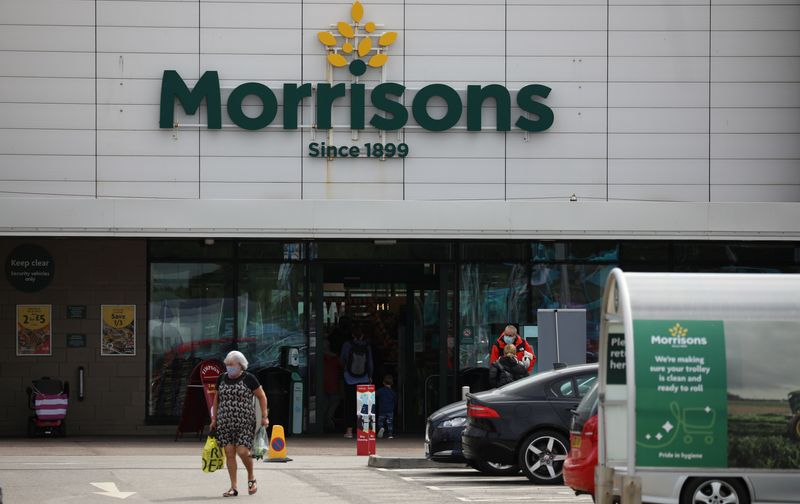LONDON (Reuters) -Britain's competition regulator has secured pledges from supermarket groups Morrisons and Marks & Spencer (OTC:MAKSY) (M&S) to cease using unlawful land agreements after it uncovered 65 anti-competitive deals, it said on Wednesday.
The Competition and Markets Authority (CMA) said the unlawful agreements included restrictions on land being used by a rival supermarket, or restrictions lasting five years or more that stopped landlords from allowing competing stores to set up.
It said Morrisons had the poorest compliance record it had seen, breaching the rules 55 times between 2011 and 2020, while M&S breached them 10 times between 2015 and 2019.
The regulator said that while 14 of Morrisons restrictions had ended, there were an outstanding 41 restrictions that it had agreed to address. Likewise, five of M&S’s restrictions have ended and it has agreed to address the remaining five.
"These restrictive agreements by our leading retailers are unlawful. There can be no excuses made for non-compliance with an Order made in 2010," Adam Land, senior director of remedies, business and financial analysis at the CMA, said.
"At a time when the weekly shop is a source of financial pressure for many families, it’s crucial that competition between supermarkets is working well to help people get the best deals they can."
A spokesperson for Morrisons said it co-operated fully with the investigation and accepted its findings. "We now plan to rectify the outstanding breaches quickly."
An M&S spokesperson said its breaches made no practical difference to the activity of its competitors and did not adversely affect competition.
But they added: "We are remedying these immediately, continuing to work with the CMA, and have introduced tighter internal governance and compulsory training to prevent it happening again.”

The CMA found similar breaches by Sainsbury's and Asda in June this year, and Tesco (OTC:TSCDY) and Waitrose in 2020 and 2022 respectively.
The CMA is also undertaking a wider review of the groceries sector and last week said it would examine loyalty scheme pricing by supermarkets.